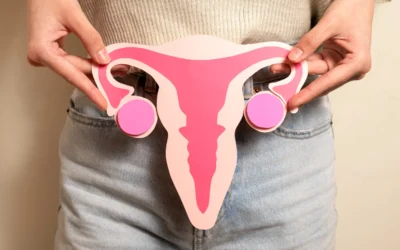Hormones are powerful chemical messengers that regulate nearly every aspect of our health. From controlling metabolism and mood to influencing reproductive health and immune response, hormones play a vital role in maintaining balance within the body. Yet, misconceptions about hormones are widespread, often causing people to overlook important symptoms or make misguided health decisions.
In This Article
Misinformation can prevent individuals from seeking appropriate medical care, maintaining proper lifestyle habits, or pursuing effective treatments. In this article, we will debunk five common hormone myths by drawing from credible scientific research, helping you make informed choices that support your well-being.
Myth #1: Hormonal Imbalance is Always Obvious
The Misconception
Many people believe that hormonal imbalances present themselves with clear and unmistakable symptoms, such as extreme fatigue, mood swings, or weight gain. While these are potential signs, hormonal imbalances are often more subtle and harder to recognize.
The Reality
Hormonal imbalances can manifest in vague or overlooked symptoms, such as:
- Persistent headaches
- Unexplained digestive issues
- Difficulty concentrating
- Skin problems like dryness or acne
- Subtle changes in hair texture or growth
For example, mild thyroid dysfunction may cause fatigue, weight fluctuations, or mental fog—symptoms that are frequently attributed to stress, aging, or poor sleep. Similarly, insulin imbalances may quietly impact blood sugar levels long before they result in noticeable diabetic symptoms.
Actionable Insight
Routine check-ups that include hormone testing can help detect imbalances early. Blood tests measuring thyroid function, cortisol, estrogen, testosterone, and insulin can provide critical insights—even before prominent symptoms appear.
Myth #2: Hormone Replacement Therapy (HRT) Causes Heart Disease
The Misconception
The Women’s Health Initiative (WHI) study in 2002 triggered widespread concern that HRT significantly increased the risk of heart disease, leading many women to avoid this treatment altogether.
The Reality
Subsequent research has clarified that HRT carries different risks depending on timing, age, and health status. According to a 2024 Stanford study, women under 60 or those who begin HRT within 10 years of menopause can actually experience cardiovascular benefits from hormone therapy. The timing of treatment is key—when started earlier, HRT has been shown to reduce the risk of heart disease, improve bone density, and alleviate menopausal symptoms.
| Factor | Impact on Heart Disease Risk |
|---|---|
| HRT initiated before age 60 | Reduced risk, especially if started within 10 years of menopause |
| HRT initiated after age 60 | Slight increase in cardiovascular risk |
| Personal risk factors (e.g., smoking, hypertension) | May alter overall risk profile |
Actionable Insight
Women considering HRT should consult their healthcare provider to assess their cardiovascular risk profile and discuss personalized treatment options.
Myth #3: Hormone Therapy is Only for Menopausal Women
The Misconception
Many believe that hormone therapy is designed exclusively for women experiencing menopause.
The Reality
While HRT is commonly associated with managing menopausal symptoms, it can benefit individuals in other life stages as well. Hormone therapy is often prescribed to manage:
- Polycystic ovary syndrome (PCOS) — to regulate menstrual cycles.
- Endometriosis — to reduce pain and inflammation.
- Thyroid disorders — to restore normal metabolic function.
- Low testosterone (in men) — to improve energy, mood, and muscle mass.
Men undergoing testosterone therapy for low hormone levels often report improved mood, energy, and bone density. Similarly, younger women with estrogen deficiencies may use targeted hormone treatments to restore hormonal balance and prevent long-term complications.
Actionable Insight
HRT is not a one-size-fits-all solution. Personalized treatment guided by a medical professional can deliver significant benefits to individuals of various ages.
Myth #4: Stress Doesn’t Significantly Affect Hormones
The Misconception
Stress is frequently dismissed as a minor factor in hormonal balance, with many believing it has little impact beyond mental well-being.
The Reality
Chronic stress triggers a prolonged increase in cortisol levels, which can disrupt multiple hormone pathways. Elevated cortisol affects insulin, estrogen, progesterone, and thyroid hormones. Over time, this imbalance can lead to:
- Irregular menstrual cycles
- Reduced fertility
- Increased abdominal fat
- Heightened risk of anxiety and depression
For instance, research shows that individuals exposed to prolonged stress are more likely to develop insulin resistance, increasing their risk of type 2 diabetes.
| Hormone | Effect of Chronic Stress |
|---|---|
| Cortisol | Elevated levels suppress immune function, increase abdominal fat |
| Insulin | Impaired response increases risk of diabetes |
| Thyroid Hormones | Reduced production slows metabolism and energy levels |
Actionable Insight
Managing stress through techniques such as meditation, yoga, and mindfulness can help stabilize cortisol levels. Regular exercise and quality sleep further support hormonal resilience.
Myth #5: Hormone Levels Are Consistent Throughout the Month
The Misconception
Some believe that hormones remain stable throughout the month, except for noticeable changes during menstruation.
The Reality
In reality, hormone levels fluctuate significantly—even daily—impacting energy, mood, and metabolism.
For example, estrogen peaks mid-cycle, boosting mood and energy, while progesterone surges after ovulation, promoting relaxation and reducing anxiety. Men also experience hormonal fluctuations, particularly in testosterone levels, which naturally decline with age and can vary based on sleep quality, stress, and lifestyle factors.
| Hormone | Typical Fluctuation Pattern |
|---|---|
| Estrogen | Peaks mid-cycle; promotes energy and mood |
| Progesterone | Rises post-ovulation; promotes calmness |
| Testosterone (Men) | Highest in the morning; declines with age |
Actionable Insight
Tracking hormonal patterns can empower individuals to plan their lifestyle and wellness routines more effectively. Apps and tracking tools designed for hormone monitoring can help identify trends and manage symptoms accordingly.
Conclusion
Misinformation about hormones can lead to missed diagnoses, ineffective treatments, or unnecessary fear of evidence-based therapies. By debunking these five common myths, individuals can make more informed decisions that support their hormonal well-being.
Achieving hormonal balance often requires a multifaceted approach—incorporating dietary changes, regular exercise, stress management, and, in some cases, medical interventions like HRT. Empowering yourself with credible knowledge is key to maintaining optimal health.
If you suspect hormonal imbalances or are exploring hormone therapies, consider seeking guidance from a healthcare provider who can tailor solutions to your unique needs.
References
- Harvard T.H. Chan School of Public Health. (2023). Hormone Therapy and Heart Health: What Women Need to Know. Retrieved from https://www.hsph.harvard.edu
- Cleveland Clinic. (2024). The Truth About Hormone Replacement Therapy (HRT). Retrieved from https://my.clevelandclinic.org
- Mayo Clinic. (2023). Hormone Imbalance: Symptoms, Causes, and Treatment Options. Retrieved from https://www.mayoclinic.org
- National Institutes of Health (NIH). (2022). Stress and Hormonal Health: Understanding Cortisol’s Role. Retrieved from https://www.nih.gov
- Endocrine Society. (2024). Managing Hormone Health at Every Life Stage. Retrieved from https://www.endocrine.org










0 Comments